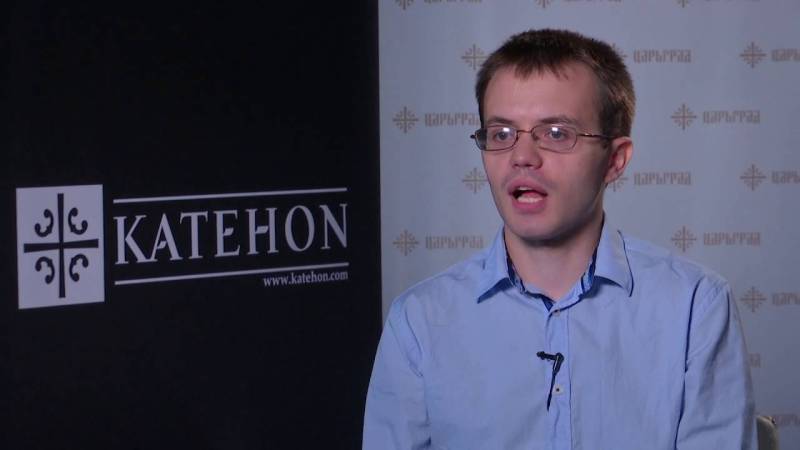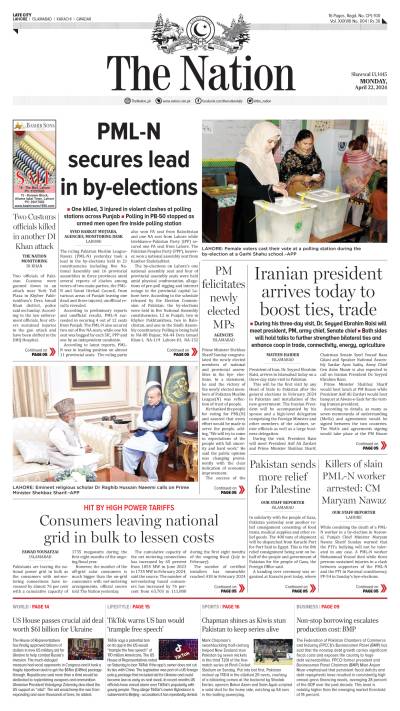ISLAMABAD - Andrew Korybko, an American political analyst based in Russia, yesterday blasted India’s celebrated expert Nandan Unnikrishnan for hitting below the belt when Indian foreign policy was criticised.
Nandan Unnikrishnan attacked Korybko on Twitter after an article was published by The Nation, titled: ‘Iran and the US-Indian hybrid war on CPEC (China-Pakistan Economic Corridor).
“Whatever this guy is smoking must be good stuff... freeing his mind to riot and not allow facts come in the way of a good argument,” Nandan Unnikrishnan tweeted prompting a strong reaction from Korybko.
Nandan Unnikrishnan is a Distinguished Fellow at Observer Research Foundation, New Delhi. He joined ORF in 2004. He looks after the Eurasia Programme of Studies.
Korybko said in a Facebook post: “Indians should be embarrassed that Nandan Unnikrishnan, one of the most distinguished experts in the country and a senior fellow at the Observer Research Foundation (India’s top think tank), lost his cool and accused me of being on drugs because he couldn’t think of any other way to deny that the joint Indo-American Hybrid War on CPEC has finally blown back into Iran and is destabilising his nation’s ambitious North-South Transport Corridor.”
He added: “It’s even more ridiculous that he felt the need to tag the Indian Embassy in Moscow and even his Minister of External Affairs, suggesting that he’s proud of his personal attack against me and wants to show off to everyone that this is how Indians should respond whenever their country’s foreign policy is criticised.”
In his article Korybko had written: “The southeastern Iranian port of Chabahar, the terminal point of the North-South Transport Corridor that India’s investing in to connect with Central Asia and Russia, was just hit by a suicide bombing that has yet to be claimed by any terrorist group as of the time of this article’s publication. Given what’s known about the regional security situation and its overall strategic dynamics, however, it’s conceivable that this attack is blowback from the joint US-Indian Hybrid War on CPEC that both allied Great Powers are waging against Pakistan via their terrorist proxies of the so-called “Balochistan Liberation Army” and Daesh.”
He wrote: “The general concept put forth and vindicated in hindsight after the latest events is that US-Indian support for BLA and Daesh terrorism against Pakistan will inevitably spread across the border into the Iranian province of Sistan and Baluchistan that hosts the strategic Chabahar port, which could in turn hamper the efficacy of this project for connecting India to Central Asia and ultimately “balancing” Russian and Chinese influence there.
More importantly, however, it could derail India’s long-term ambitions to make itself a key player in the Afghan peace process through the patronage networks that the NSTC’s eastern branch could create with time. While there’s a chance that this blowback was, per the very definition of the word itself, unintentional, another possibility also exists.”
Ironically, he said, “the most far-reaching blowback from the Hybrid War on CPEC therefore might not be that the Chabahar Corridor could be discontinued or that this latest event contributes to Iran pulling back from Syria per the US-Saudi plan in this respect and Russia’s initiative that it’s reportedly commencing independently thereof, but that the grand strategic positions of the US and its Indian ally are greatly weakened if the ultimate outcome is that the Golden Ring becomes more unified than ever before in the face of this terrorist threat. Russia, China, and the Central Asian CPEC stakeholders’ support of any joint Pakistani-Iranian anti-terrorist measures, especially worldwide information campaigns at international fora, would go a long way towards showing the world that Eurasia won’t be divided by such Hybrid War schemes.”
CPEC is a framework of regional connectivity. It not only benefits China and Pakistan but will have positive impact on Iran, Afghanistan, India, Central Asian Republics, and the region.
The Corridor aims enhancement of geographical linkages having improved road, rail and air transportation system with frequent and free exchanges of growth and people to people contact, enhancing understanding through academic, cultural and regional knowledge and culture, activity of higher volume of flow of trade and businesses, producing and moving energy to have more optimal businesses and enhancement of cooperation by win-win model will result in well connected, integrated region of shared destiny, harmony and development.
India has been opposing the CPEC claiming it is being implemented in ‘disputed’ areas including Azad Jammu Kashmir and the Gilgit-Baltistan. Pakistan and China deny breaking any rules.
Responding to Nandan Unnikrishnan’s hostile tweet, Korybko said: “Drug use is illegal in Russia and foreigners such as myself can be deported for such a crime, so accusing me of being on drugs and even bringing his claims to the attention of the Indian Embassy in Moscow and his country’s Minister of External Affairs is an unprecedentedly serious escalation of unprovoked hostilities.”
He maintained: “I’m appalled that Unnikrishnan who I’ve never met or even corresponded with before in my life would flat-out lie about this and tag his Embassy and MEA (ministry of external affairs) just because my latest analysis triggered him.”
Korybko said he believed the Indian Embassy in Moscow and the Indian MEA who Unnikrishnan tagged in his “aggressive and defamatory post about me should condemn his unprofessionalism, and I call upon all of my Indian and other friends to do so as well but to please be respectful and not stoop down to his unclassy and disrespectful behavior.”
He added: “I’m personally shocked that a man whose work I occasionally read and who I previously respected by virtue of his distinguished position as one of India’s top experts would do something like this, but I hope that he does the right thing by apologizing not only to me, but also to his 1.3 billion compatriots who he insulted by publicly and proudly showing the world that this is how he thinks they should react when their country’s foreign policy is criticized.”






